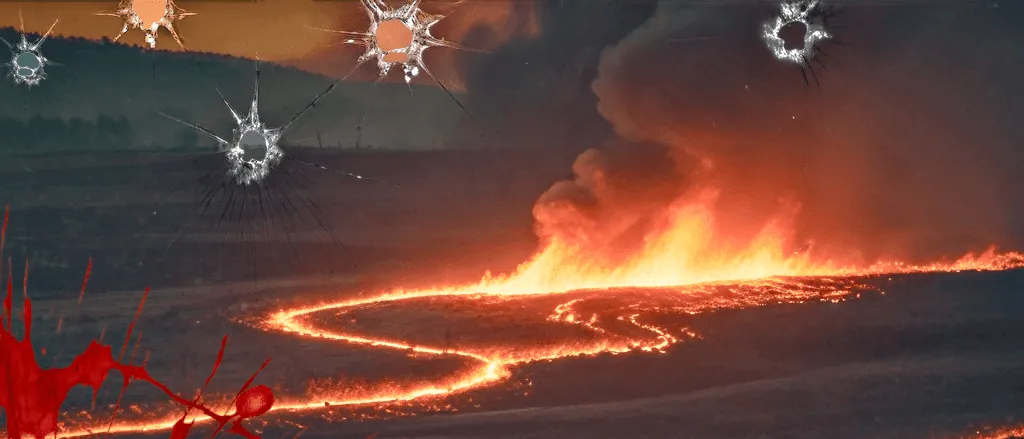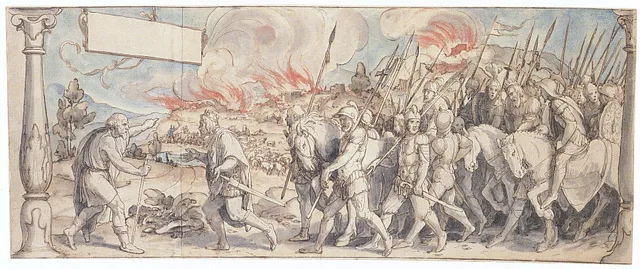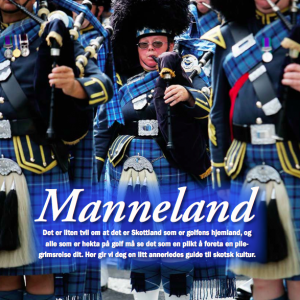
Blood and Soil and Blind Faith in The Holy Land
When we’re vilifying one side or the other for the senseless killing in the Middle East, chances are we’ve got the sides wrong.
When we look at a conflict, we usually try to understand it by cutting along the most apparent identifier that makes a modicum of sense – nationality, ethnicity, religion, whatever.

Besides, it’s so tempting, when we read about the latest atrocity in the news, to condemn not only the people who did it, but also the people they say they represent.
And it’s so tempting, when we see people in pain, to want to support not only the people who are suffering, but also the people who claim to be defending them.
But that is a mistake. The real sides in any conflict are not what those people say it is.
Mind virus vs. mind virus
Most people, on either side of divides like that, want nothing to do with such violent conflict.
Sure, when the pain from the most recent attack is at its sharpest, they may be blinded by grief and hot rage, and long for bloody revenge. But when the pain dulls, most people want nothing so much as they want peace, security and a future for their children.
Lumping innocent, peace-loving people in with the blood-thirsty warmongers who kill in their name, plays right into the hands of the latter. The warmongers want to make it seem like they have entire peoples at their back, in an epic war for the very survival of their kind.
And if the other warmongers–the ones looking back at them from across the divide–have their say, they’re not even wrong.
But they’re only right in as much as their counterparts are infected by the same mind virus as they are: Exceptionally toxic and terrible and somewhat contageous ideas that fill them with a sense of rightousness and bloodlust.
If we could cure people of those terrible ideas, it wouldn’t solve everything, but it would take us a long leap closer to something like peace.
So what are these ideas, that have infected human minds, and caused many millions of deaths over thousands of years?
Blood and soil
It’s a phrase that should chill your bones.
“Blood and soil” is a slogan typically associated with nazism, but it describes something that has been used to motivate mass murder everywhere: The idea that there’s an unbreakable link between bloodlines, ancestry, on the one hand, and the very soil the people walk on and work with on the other.
In short, your ethnicity bestows some mystical right to land.
Not in the trivial, legal or economic sense, in which land is privatly owned property, that can be passed down as an inheritance. Not in the sentimental sense, in which people feel a connection to the place they grew up, and should be free to make a life and start a family there, maybe even in their childhood home, if they can.
But in a twisted moral sense, where you, by virtue of your ethnicity and culture, feel a sense of entitlement to land that you may have never even seen. That something in your genes means that you have a right to be there, but certain others do not.

Once you catch that particular mind virus, everything you read about history, everything you know about culture, every detail about some distant ancestor’s life, takes on new significance, and will strengthen your sense of entitlement.
Your brain will rewire around it.
You might even come to find it distasteful, border-line offensive, to see people from another group walk the roads, live their lives, and raise their family — entirely unapologetically, mind you! — in an area that you believe should belong to people like you, not people like them.
That is pure ethno-nationalism, and it is toxic.
Whoever you think I’m describing here, you’re probably correct — but not correct enough.
It describes central parts of literal nazi ideology, and is often adopted by fascists everywhere. But you can find variants of it in virtually every ethnic group–including, most likely, your own. Maybe not you, personally, but it’s very likely that someone has made a similar case on behalf of “your people”.
Nostaligia for Utopia
It’s easy to misunderstand what I mean here, because I’m describing the extremist version of something common, and often celebrated.
It is entirely natural for peoples and tribes to feel a deep, spiritual connection to the land they come from, and identify with it. The land has shaped their culture, their shared values and beliefs, even their genetics in the long and big perspective. The people, in turn, have often acted as stewards of the land, and have left their mark on it.
That is the historical genesis of many, many nations and states, and it is often beautiful, when it is open and non-exclusionary.
But too often the connection goes beyond romantic, into the reactionary and even fetishistic. It is given a significance it doesn’t have. As populations shift and grow, and the world changes, the relationship to the land itself becomes almost mythological, utopian, and often accompanied by nostalgia for a time that never actually existed.
Oh, how we long for that time and that place! The Disneyan pastoral, where everyone started their days singing and well-fed, ready for the daily, choreographed dance of carrying bread and over-flowing buckets of milk through the village square, and where the animals were mostly for comic relief.

The dream of getting back to this Utopia that never existed is used to justify violence against one’s neighbors, and displacing or brutally oppressing people from other groups who inhabit the land.
Variants of this, with explicitly religious overtones, were the rationale for Manifest Destiny and European colonizers’ taking over entire continents.
But it’s not exclusively European. You can find variations on this theme around the world and throughout history, from the Incan empire to present-day China, from the politics and behavior of current-day Russia to any number of civil wars that are tearing much of Africa, particularly between Sahara and the Equator, apart.
I don’t mean to suggest that it is the main driving force behind every territorial conflict, but it is a frighteningly easy and effective drum to beat, for the power-hungry demagogues and ruthless warlords who need a motivated army to help them fulfill their own personal ambition and greed.
You’re not history’s victim
So let’s be clear: The idea that your ethnicity and bloodline somehow bestows moral privileges on you, that allow you to treat neighbors as trespassers, and lay claim to land others live on, because of a sense of entitlement inherited from a time before living memory, is not justified.
Not even if — and this is important — your ancestors were displaced first.
This is probably hard to swallow, but even if your ancestors were victims of unimaginable injustice in their time, you are your own moral being. You are born innocent into this world, not guilty of your ancestors’ crimes. The flip side of that, is that you are also not the victim of the crimes perpetrated against them.
(In a perverse twist, you would probably not even have been born in a world where your ancestors had been treated more justly.)
None of this justifies historical crimes in any sense. Nor does it mean you shouldn’t be angry about that injustice or speak up for your ancestors. Nor does it mean that you shouldn’t care about your family’s history.
But it does mean that you shouldn’t base your identity, your expectations of the world, your sense of what the world owes you, around what your ancestors went through.
Applied to Semites
All this applies to Jewish settlers on the West Bank, as well as many Arabs’ and Palestinians’ view of Israel: Each group thinks their natural, god-given, self-evidently righteous claim on the land is greater.
For most people who hold views like those, there is no history of legal transactions for a particular piece of real estate that can convince them otherwise. You could show them that a particular plot of land has been legally bought, sold, and handed down through the generations since the days of the Roman Empire or before, and they’ll simply say that the land was stolen from them before that.
(Which is probably true. On the other hand, that far back, they have the same ancestors, so that doesn’t help them much.)
The point is that the conflict is not about how legal or reasonable any particular claim is. It’s about ethno-nationalism, tribalism, bigotry and the one-sided arguments that follow — the unwillingness of the warmonger to see one child born into the situation as equally innocent, and equally deserving of a future, as the other.
It’s about an unwillingness to accept that the fundamental unfairness of life that everyone is born into, to some degree or another, is rarely created by anyone living today, except in reaction to a similar unwillingness to accept it on someone else’s part. The unfairness runs all the way through, if we only go looking for it.
The resentment and bitterness has been carried forward, twisted and perverted through the generations, and will not end as long as we keep holding on to, and passing forward, centuries-old tribal enmity, inherited bitterness, and anger.
If it hadn’t been for the violent war mongerers, infected by this way of thinking, I believe most people would strive to live according to what they know: Babies born on the same soil are neighbors, regardless of what their ancestors did. They shouldn’t be taught how they’re different, and that they should hate each other, but how to live like they were born – side by side.
And a good first step in that direction would be to admit that there is no unbreakable, immutable bond between blood and soil, that justifies mistreating your neighbor.
Rejecting the tribalism
There once was a group of people who truly rejected this identitarianism, and urged everyone to treat their neighbors well.
Coincidentally, they were all Palestinian. They were also all Jewish. They were oppressed, born into an area occupied by unapologetic imperialists. And they were all violently persecuted for their beliefs.
Despite that, they were peace-loving, and they preached forgiveness everywhere they went.
They were, of course, the first Christians.
That sounds so hopeful, doesn’t it? Oh, happy day! The first Christians represented radical unity, inclusivity, and forgiveness.
One of their core teachings were that even a Samaritan (who “everyone” considered awful people) could be as good a neighbor as priests or Levites (who were practically nobility), and every bit as capable and deserving of compassion and respect.

That sure feels like a good place to start if you’re looking for a solution in the holy land, and to make good neighbors of previous enemies …
Unfortunately, ethno-nationalism and tribalism are just the beginning of our problems. And arguably not even the worst part.
Killing & Dying for Dubious Claims
The troubles have another deep-rooted cause, and no one embodies it quite as well as the early Christians: A taste for magical thinking, religious dogma, blind faith, and martyrdom.
Jesus himself, as well as 10 of his 12 disciples, Matthias (who took Judas’ place in the group), and Paul (arguably Christianity’s most influential missionary), were supposedly all martyred for their beliefs, and their martyrdom is still revered today.
Now, I would argue that there are causes in the world worth risking and giving your life for. Standing up for others and oneself in the face of murderous injustice — without becoming an unjust murderer yourself!— is probably one of them.
Stubbornly insisting on fantastical factual claims about the universe for which you have no good evidence is definitely not.

We don’t know many details about how most of the apostles died, but in the tradition, the most generous interpretation is that they seem to have died for a mix of the two.
They were converting people not just to love, compassion, and forgiveness for their fellow humans, but also to the claim that a mortal man was God’s son, and that they had special knowledge about the future, the afterlife, and, most importantly, what God really wants. They more than suggested that God wanted slaves to obey their masters, and women to obey men; that God is going to exact vengeance on sinners – including non-believers – and condemn them to eternal hellfire, to take just a few examples.
I am sure they believed they were saving people from eternal damnation, preparing them for the impending apocalypse. But those are factual claims, for which there is precious little evidence.
The martyrs were so certain that they were correct about their beliefs — even when their beliefs contradict everything about how the world normally works — and they were so certain that God was on their side, that they were willing to die painfully for what they believed in.

Is that kind of cocksureness, such an utter lack of humility, supposed to be a virtue? Because it is definitely a recipe for conflict.
Doubt worse than murder
You might think it unfair of me to pull the early Christians into this. But their stories are a perfect illustration of a problem that permeats every part of the conflict in the Middle East, but that is also far more universal.
The kind of blind faith I describe is the same exact certainty that many zionist settlers have, when they claim that God is on their side, and has promised them the land between the Jordan River and the Mediterranean Sea, so that it is okay to take it from hard-working goyim at gunpoint.
It is the same exact certainty that many jihadists have, when they claim God is on their side, and will reward them handsomely in heaven for killing infidels, including women and children, in suicidal attacks.
And it is the exact same certainty some evangelical Christians have, when they claim God is on their side, and they welcome Armageddon; when they actively stoke the conflict in the area, to help God bring about the end of the world, so that they can get to heaven sooner. (As if …)
The all have the same cocksureness and lack of humility, even as the death toll goes higher. “Of course I am right,” they think and say, if the question even comes up. (Not least because they realize that if they’re wrong, then they’ve acted like monsters.)

Cursed are those who stop to think before they kill or die … “What if, God forbid, I am wrong?” Supposedly even thinking that question is a sin. (Unless you actually are wrong, but … yeah, don’t ask.)
On the other hand, taking lives, others’ or your own, on the basis of the most unlikely claims and the flimsiest evidence imaginable — gut feeling, hearsay, and a millennia-old game of telephone — is just evidence of the strength of your faith.
And, as we know, religious faith — blind faith, belief unsupported by good evidence — is a virtue. At least, and for obvious reasons, to those who believe in a god who makes his will known only to some people.
But is it really?
Killing kids in the name of God
Religious faith (unlike faith in yourself, or in other people and their values, character and capabilities) is based on dogma. It is entirely divorced from evidence and arguments. If it’s not, we call it knowledge or reason, not faith.
Religious faith doesn’t require you to think at all, or act in accordance with your values. It is a complete abdication of moral responsibility.
Most people wouldn’t dream of harming a child for any reason, but there are people who will kill even their own children if they think it’s God’s will – entirely based on deranged faith. Not only can you find all-too-frequent evidence of that in the news papers, but Abraham – whose name we invoke when we lump Judaism, Christianity and Islam together as Abrahamic religions – was the archetype of that person.
In the Abrahamic traditions, Abraham was entirely ready to sacrifice his son, Isaac, just because he thought God had said so, when an angel stopped him.
How do you convince a person who holds Abraham in the absolute highest regard, that not even God’s will – and especially not unproven claims to know what God’s will is – is good enough justification to kill a child?

Blind faith makes an end run around any and all moral reasoning, and just requires you to follow the rules and do as you’re told. (Or rather, as you are told that you are told. Even sadder …)
But it also prevents you from admitting that there are things you don’t know; stops you from being curious about your fellow humans and learning about the world; makes it harder to see all the moral complexity in the world, and prevents you from engaging honestly with the really difficult questions.
Redrawing the sides
Most people in the world are not this crazy. They would never accpet that there’s an unbreakable bond between blood and soil that justifies violence against innocent children, or that it’s okay to kill and die for factual claims you can’t even check.
Unfortunately, many of those reasonable people will sign off on “moderate” (hypocritical?) versions of the same ideas: Recognizing some people’s amorphous moral “right” to land in a way that vilifies people who were born and raised there. Holding Abraham and others as sacred figures for acts they would imprison any modern zealot for.
But that is a discussion for another day.
However, there is a vocal and violent minority who subscribe to the very worst versions of such ideas even today, and they don’t think twice about dragging their friends, family and neighbors into trouble again and again. As they have. As they do. As they will continue to do until they are stopped.
After all, they have history and God on their side.
It’s tempting to blame the tragedy in the Middle East on one side in the conflict or the other, including everyone the extremists say they are fighting for. And once you go looking, there’s no lack of evidence of actions and decisions that show they actually deserve that blame.
But give the acute pain of the moment time to subside into a dull ache, and allow the anger and thirst for revenge to turn to sadness, and you will find that even the people you thought were the enemy just want peace, security, and a good life for themselves and their children.
Those who deny them those things are not their counterparts on the other side of the issue and other side of the border — that’s just more worried parents and more innocent children — but the ethno-nationalists and religious zealots that are just as likely to be found next door.
If you want the tragedy to stop, place the blame on the bloodthirsty warmongers who deserve it.





